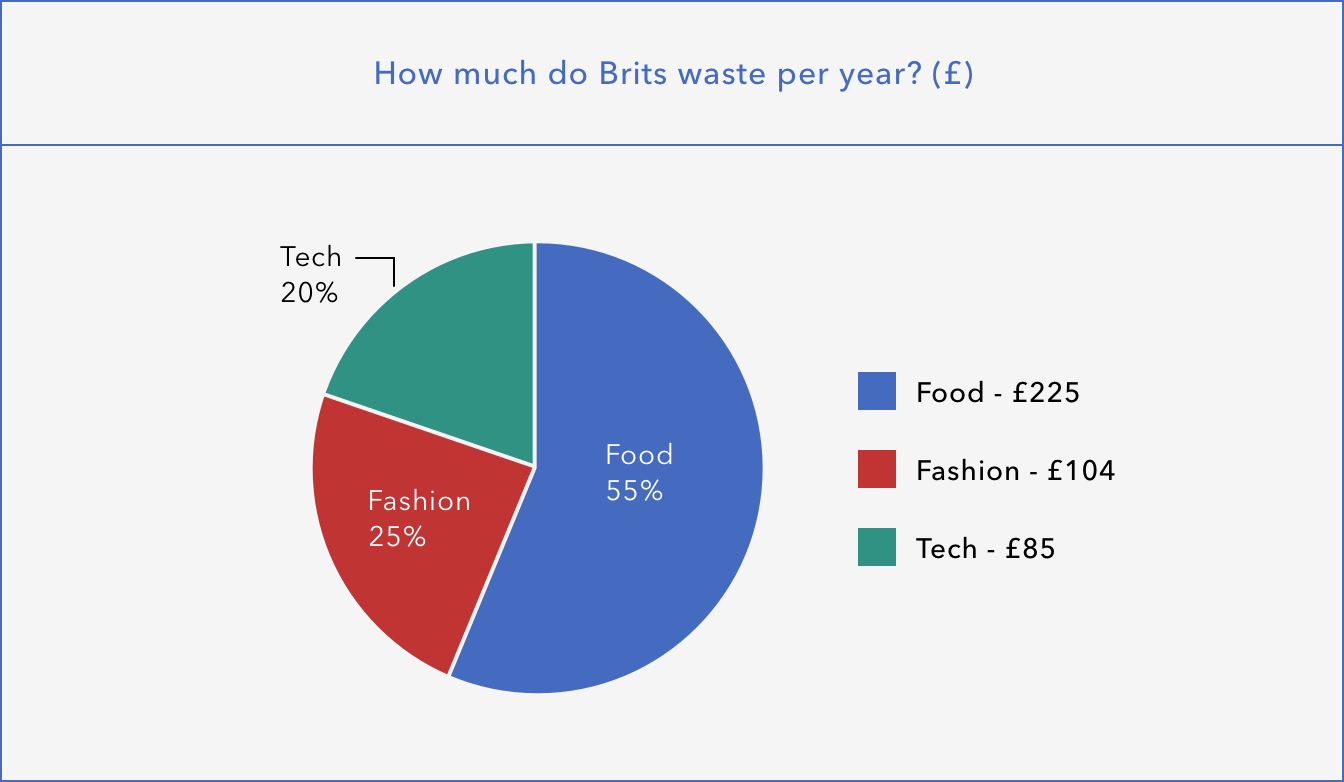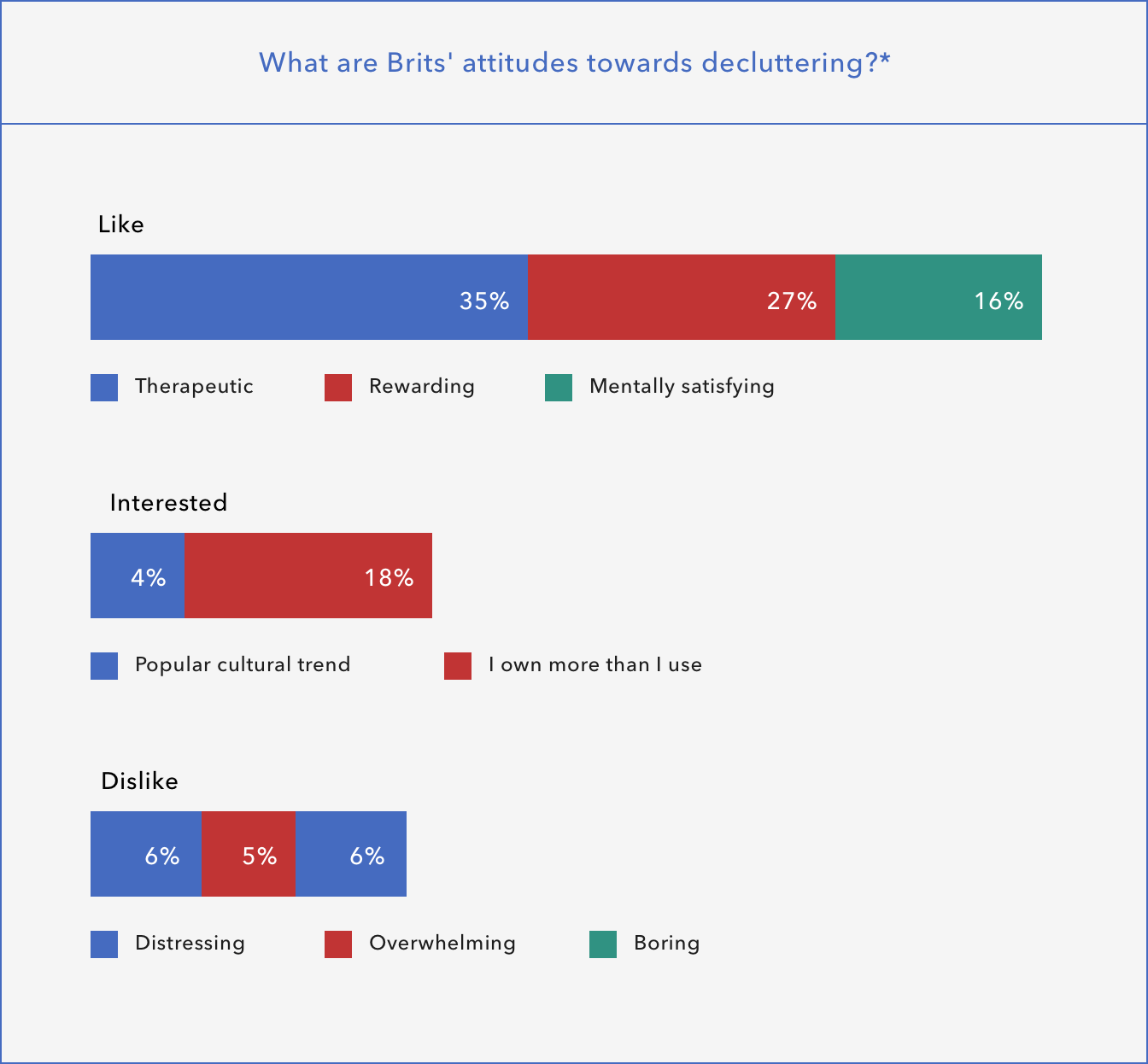Could a minimalist lifestyle boost your bank balance and meaning in your life?
This philosophy is a popular one: the promise that we can maximise our lives with a minimalist lifestyle. But, by putting select old belongings into cardboard boxes or donating them, can we put more meaning into our lives?
A study by packaging retailer RAJA wanted to find out what Brits make of this movement, and whether they’ve felt a benefit from a purge of their possessions. To do this, they surveyed over 1,000 respondents on their attitudes to de-cluttering food, fashion and technology products in their homes.
The findings revealed that 3 in 10 people are profiting from a side hustle by selling their old belongings, with almost three-quarters of 35-54-year olds getting rid of their things this way.
- Lockdown has led to a surge in screen time; UK adults use their phone for up to 40% of the day. Declutter devices for a better experience.
- Decluttering your home office can positively impact physical and mental health by reducing stress.
- 62% of people find decluttering to be therapeutic and rewarding.
- 65% of people in the UK stated they feel more stressed since the first lockdown in March 2020.
How much are Brits wasting on food, fashion and technology?

The study results found that, on average, Brits are wasting a quarter of the food, fashion and technology items that they buy in one year.
Altogether, that’s over £400 that could be spent elsewhere and affording themselves valuable space.
How would you feel about an all-inclusive weekend away, giving more generously to charity or simply splashing out on family and friends? There are plenty of ways you could use this spare cash – and all without accumulating any waste.
On the topic of waste, what, if anything, are Brits doing with their old belongings? Raja’s report discovered that 19% (almost one in five Brits!) do not de-clutter at all – which is 5.2m if we applied this figure across all over-16’s in Britain. Do many of us simply hold the habits of a hoarder, or is there another reason we cannot let go?
Why are we holding onto our old belongings?
One of the main reasons that respondents said they didn’t de-clutter is because they’re emotionally attached to their belongings (20% of Brits say so).
“For many of us, our sense of self is wrapped up in our possessions,” said the report.
“Whether our ‘things’ remind us of past relationships or help bring back fond memories of childhood, the sentimental value of certain items often outweighs the cost. Surprisingly, more millennials hold emotional attachments to their belongings than other generations, going against the assumption that they choose experiences over things.
“Finally, not fully understanding how to dispose of or recycle our food, fashion and tech is a major factor that stops us from saying goodbye to our things. Over half of the British public (51%) say they don’t know how to confidently dispose of their tech, crowning this as the most complex thing to de-clutter correctly, followed by fashion (41%) and food (38%).”
How can we breathe new life into old belongings?
And yet, 4 in 5 of us do de-clutter, said the report – so what are we doing with our “stuff”?
It turns out Brits are a charitable lot, with over half of respondents (55%) donating their pre-loved possessions to charities and over a quarter of them (26%) are handing down their belongings to friends and family.
Many are crafty with their possessions, too. The report found out that 37% either recycle or upcycle their products –both of which help your belongings go further for longer. Recycling helps turn waste into a reusable material or product, while upcycling turns waste into something of a higher quality than before. Whether it’s turning a ladder into a bookshelf or restoring a bicycle to get it back on the road, many of us are breathing new life into old belongings – and pocketing ourselves with some profit to boot.
How does de-cluttering make us feel?

So, how do we feel when we de-clutter? Raja asked the 80% of people that said they actively de-clutter at least once per year.
“Feeling house-proud is somewhat of a fuel for us Brits,” said the report. “Over half of respondents were motivated to dig out their and de-clutter when they wanted to free up some space, with 34% of them doing it to improve the presentation of their homes and 16% taking this task on when moving home.”
Emotions were also measured when fulfilling this duty. Although 1 in 10 said that it evoked negative feelings such as distress or feeling overwhelmed, the responses were namely positive:
- 35% said they find de-cluttering to be a therapeutic experience
- 27% found it rewarding
- 16% said they de-clutter because it is beneficial to their mental health
When people de-clutter their home, they’re also de-cluttering their mind and gaining some emotional benefits.


